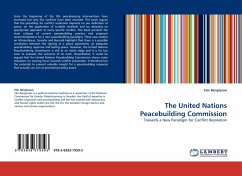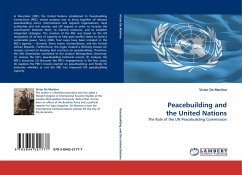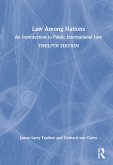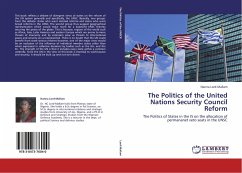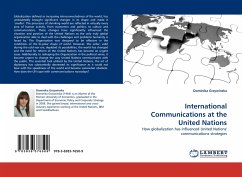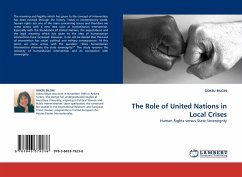Since the beginning of the 90s peacekeeping interventions have increased but only few conflicts have been resolved. This book argues that the possibility for conflict resolution depends on our definition of peace, on the application of suitable methods and by adopting an appropriate approach to every specific conflict. This book presents the main critique of current peacebuilding practice and proposes recommendations for a new peacebuilding paradigm. Three case studies on Mozambique, Somalia and Burundi highlight that there is a possible correlation between the signing of a peace agreement, an adequate peacebuilding response and lasting peace. However, the United Nations Peacebuildning Commission is still at an initial stage and it is far too soon to evaluate the outcome of its work. Nevertheless, it could be argued that the United Nations Peacebuilding Commission shows some indicators on moving focus towards conflict prevention. It therefore has the potential to present valuableinsight for a peacebuilding response that actually can aim at promoting lasting peace.
Bitte wählen Sie Ihr Anliegen aus.
Rechnungen
Retourenschein anfordern
Bestellstatus
Storno

